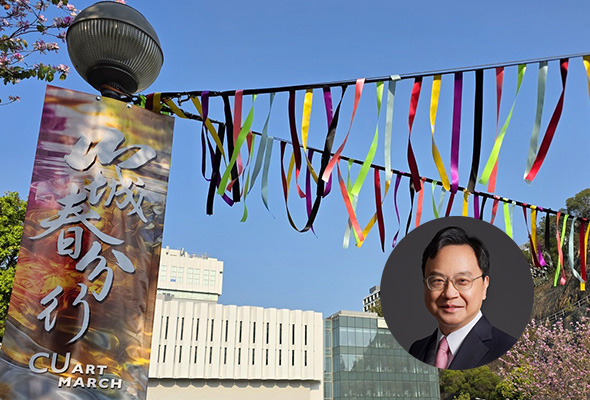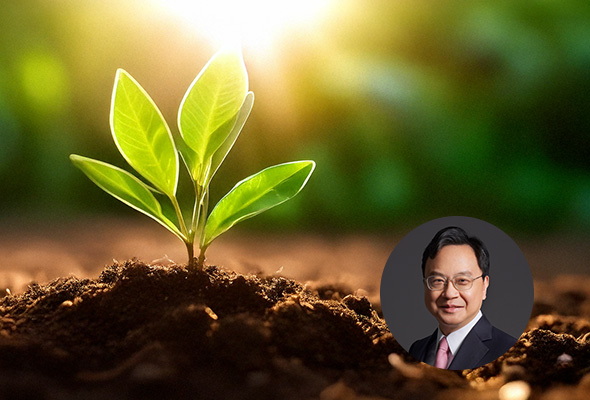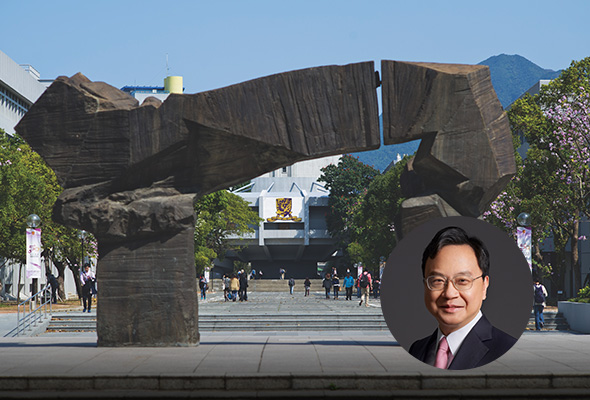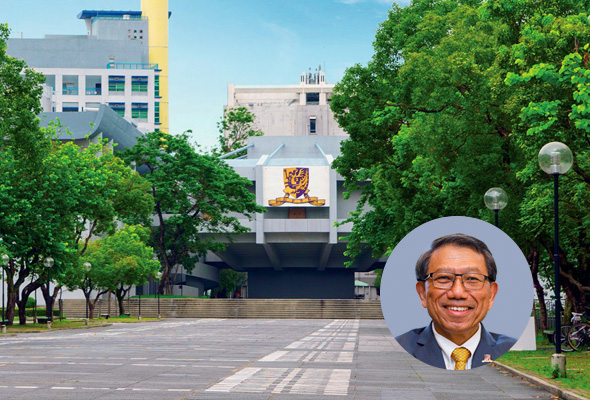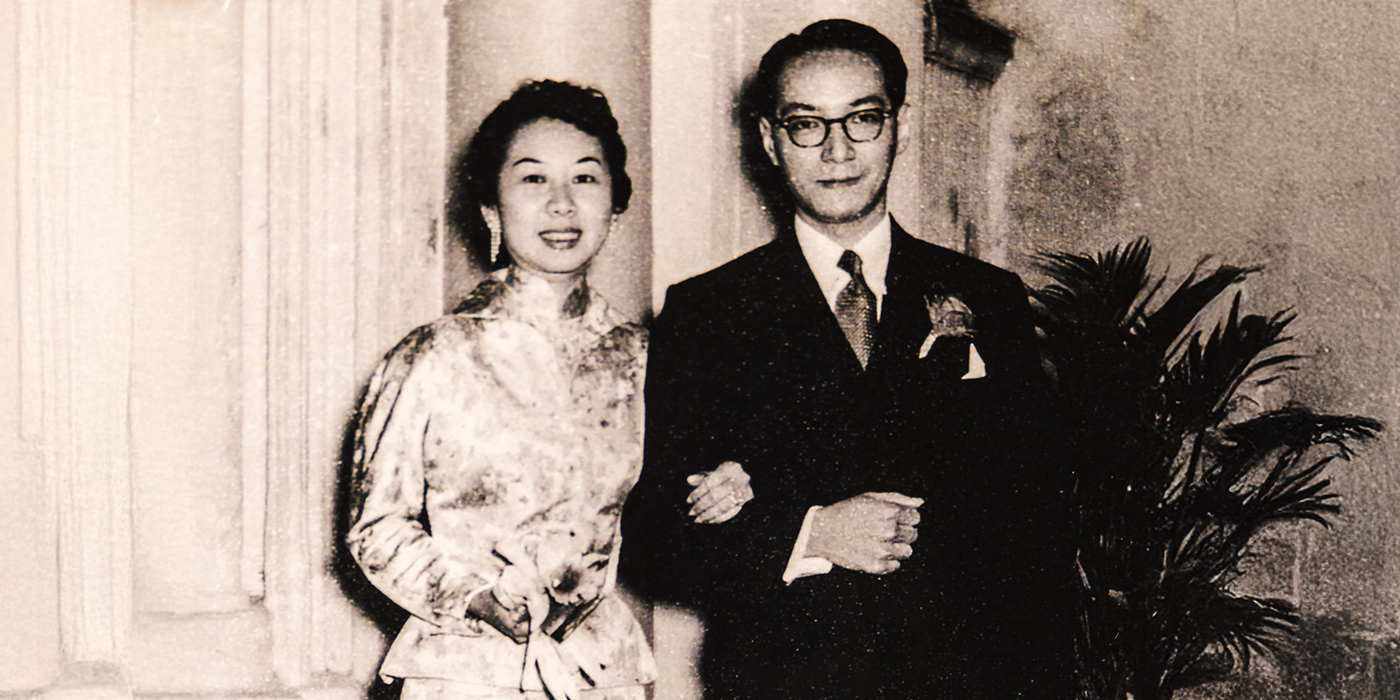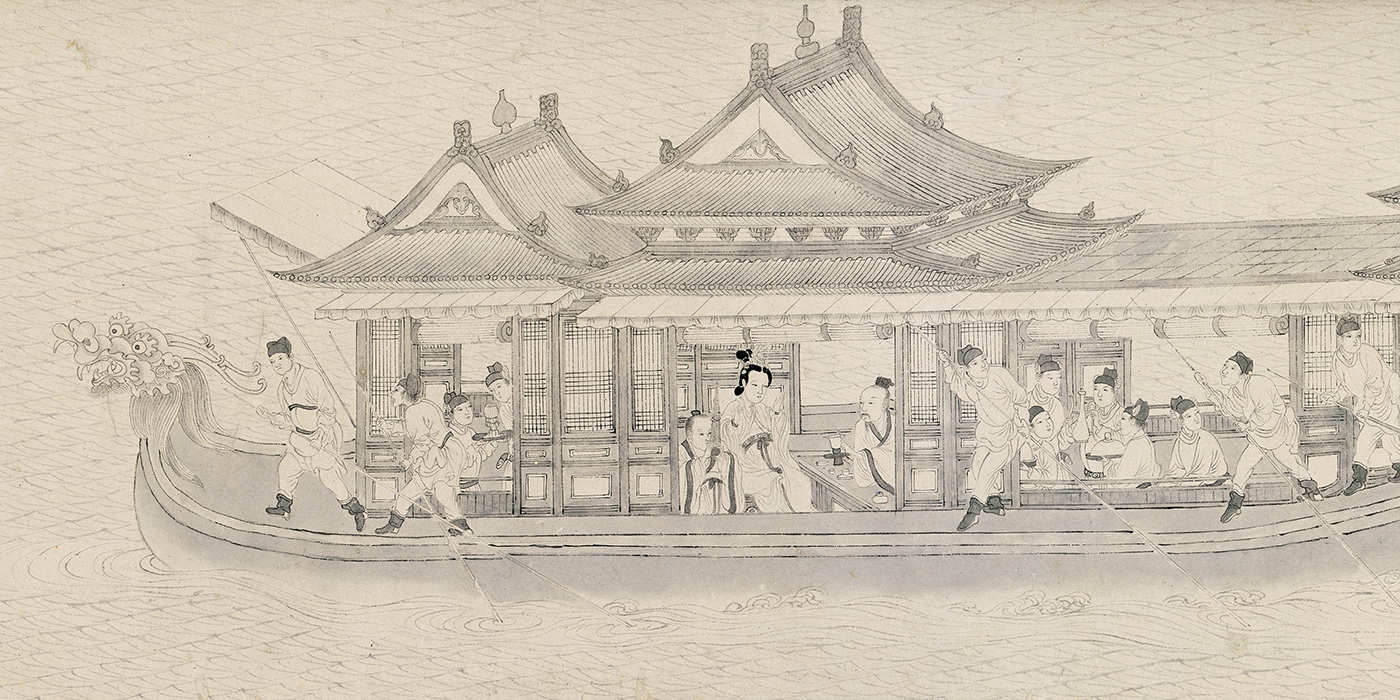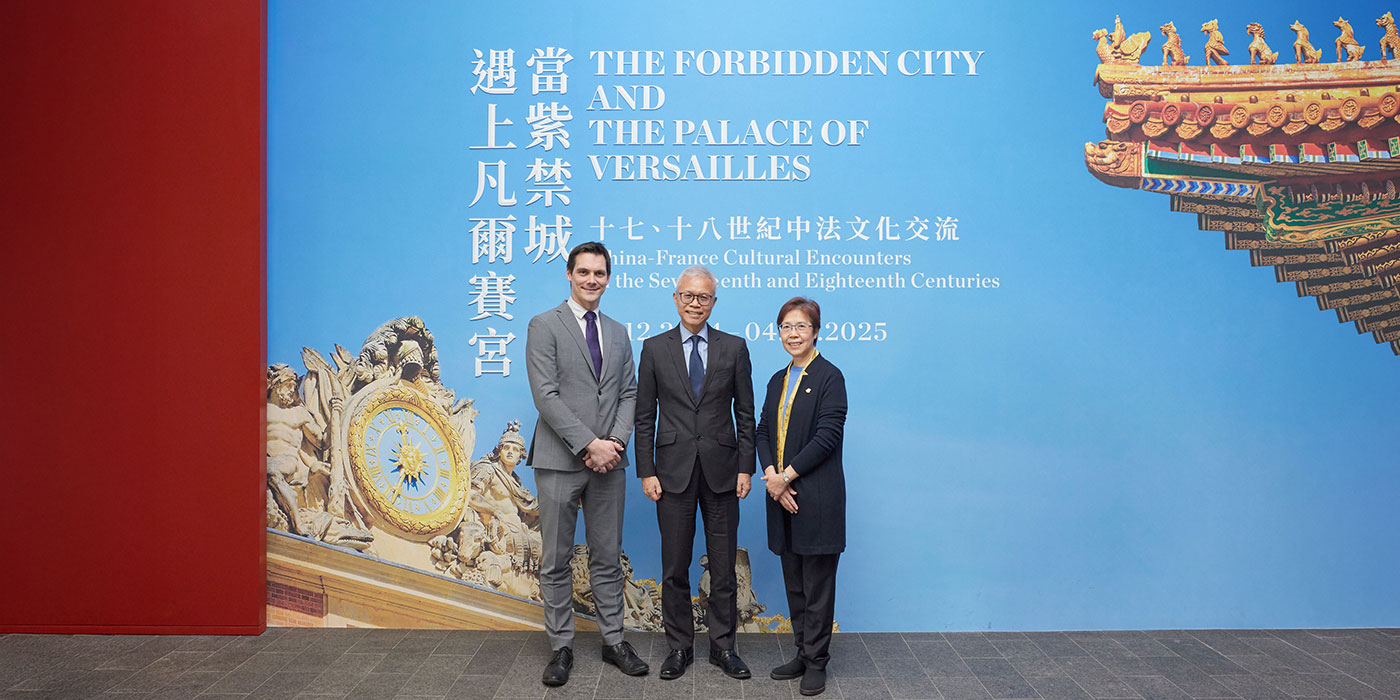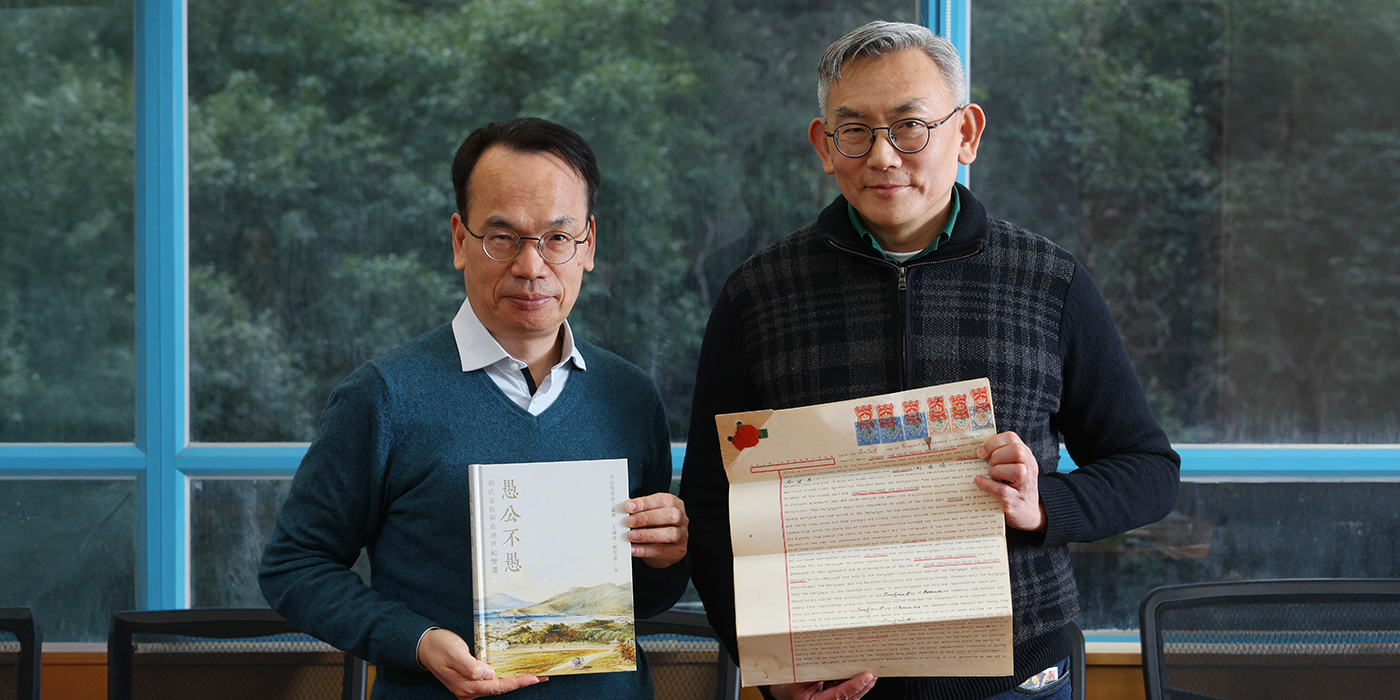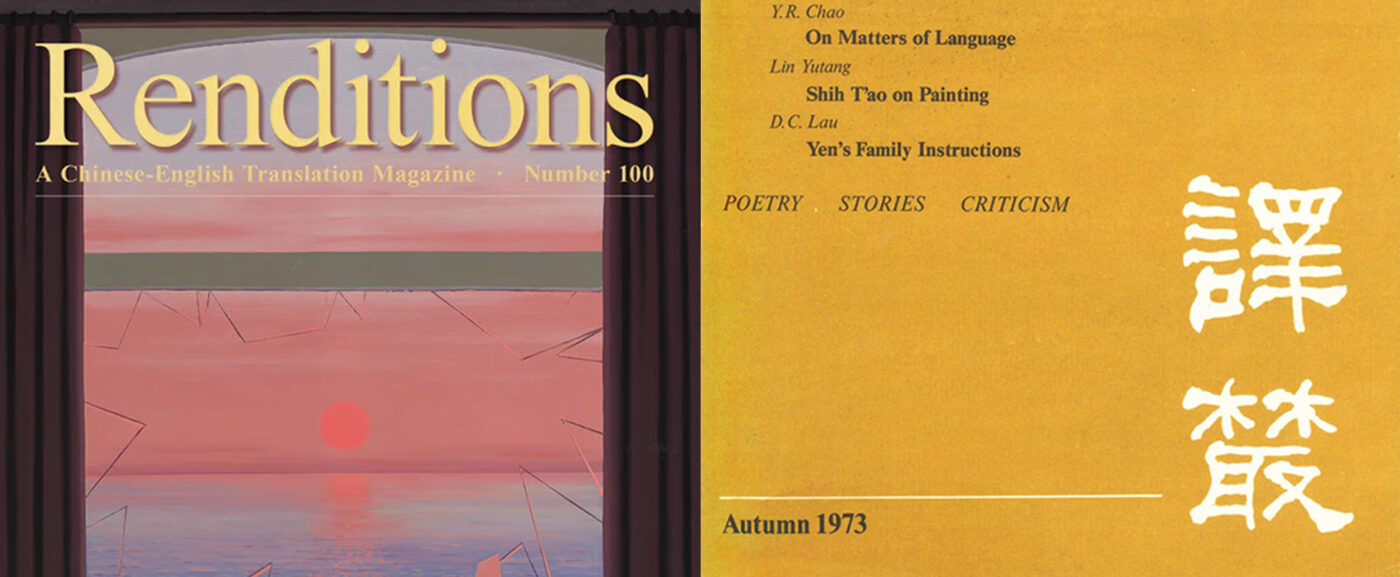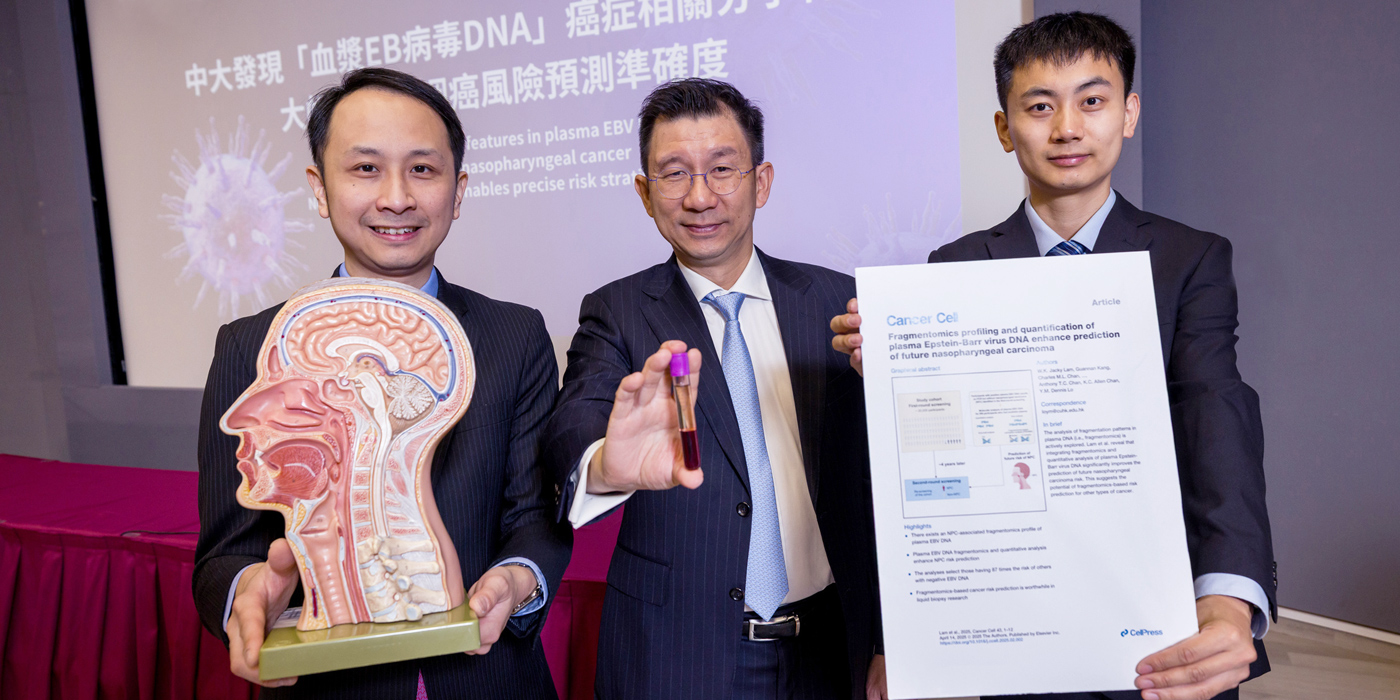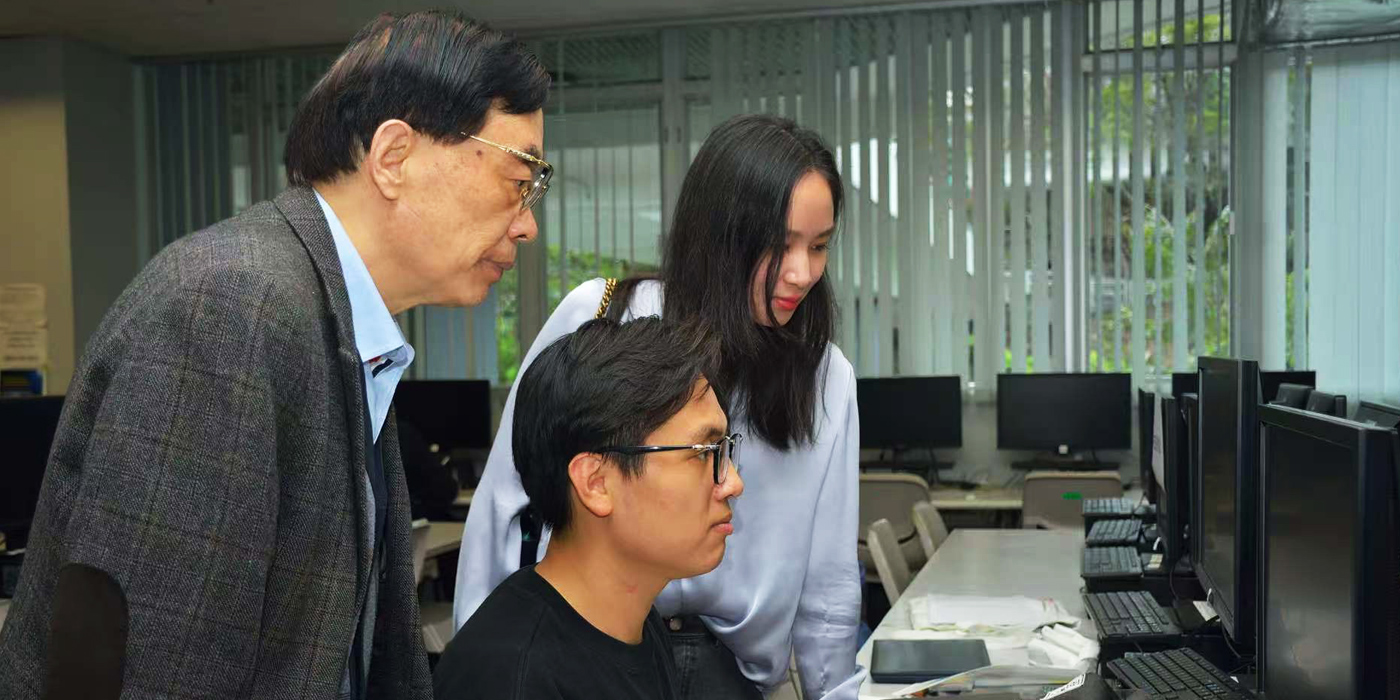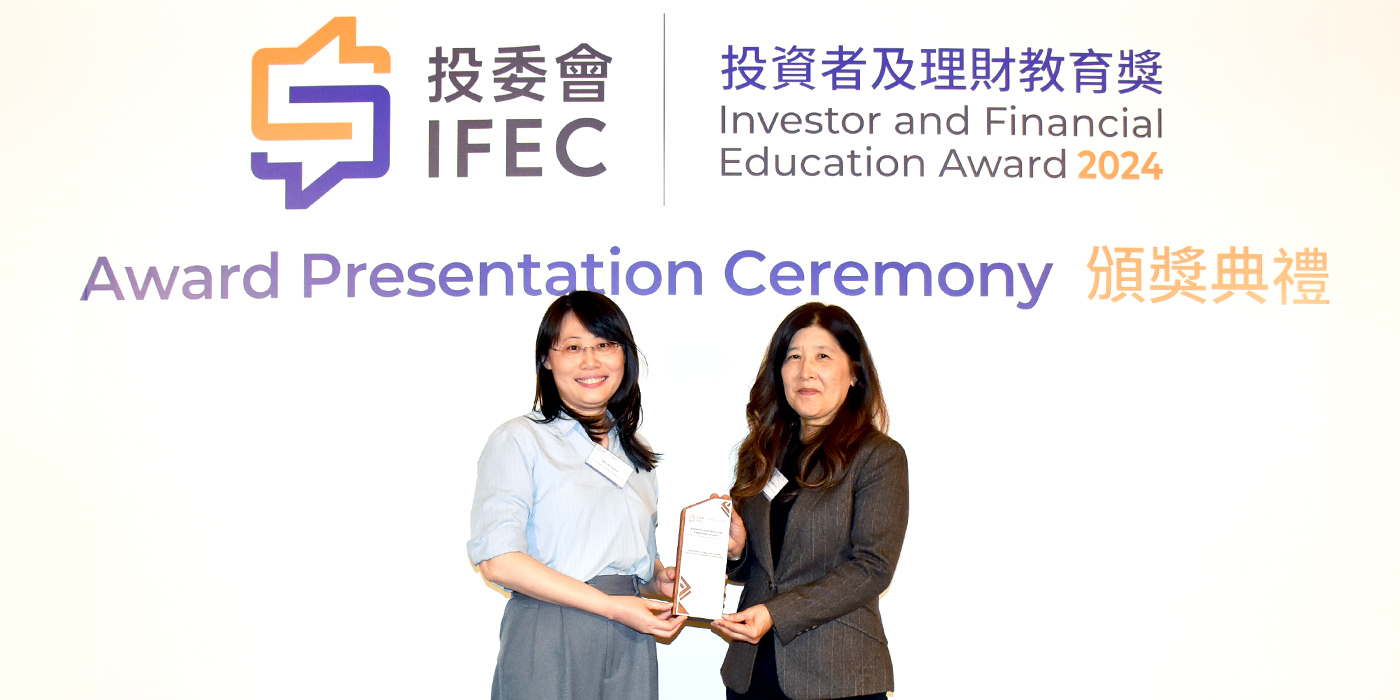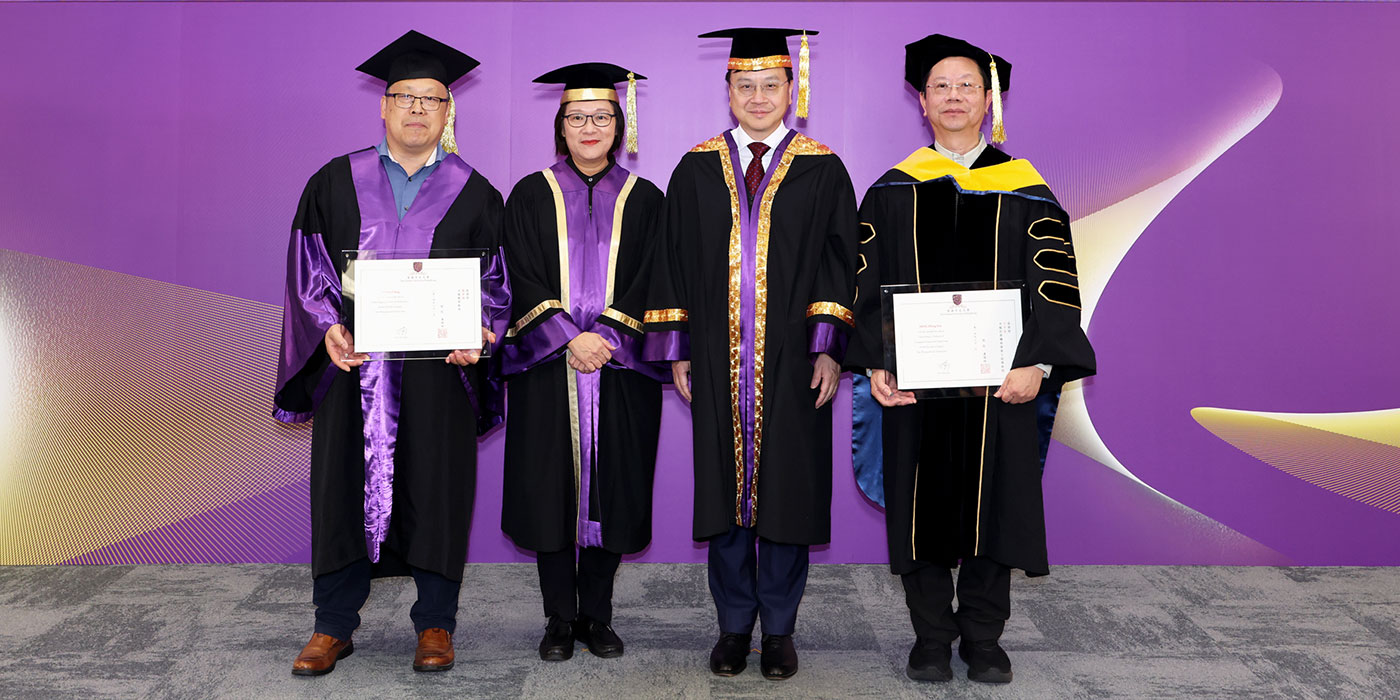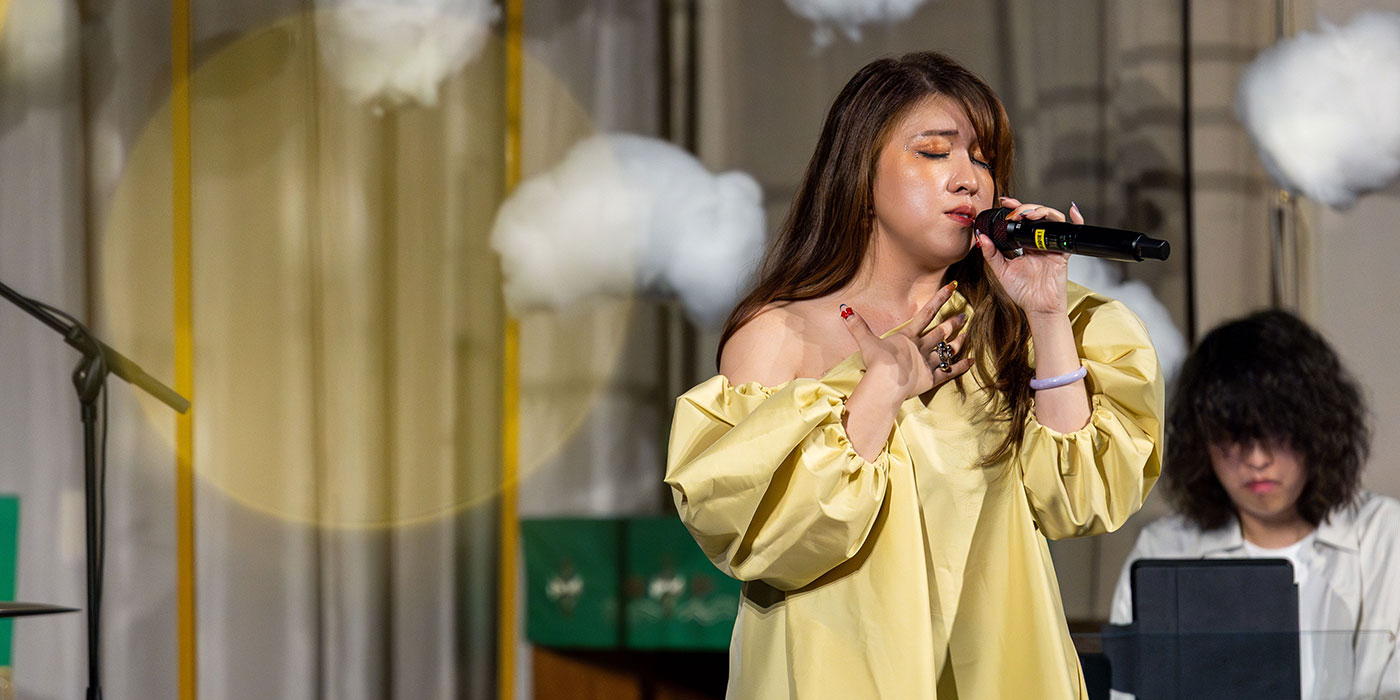Bookshelves of CUHK
“Books are a uniquely portable magic,” said prominent American novelist Stephen King when he shared his thoughts on the wonders of reading. We can never travel to every part of the world, nor can we experience every possible lifestyle – but reading makes the impossible less unattainable. For CUHK professors who might have been one of your course instructors, reading books outside their own disciplines opens the doors to treasure.
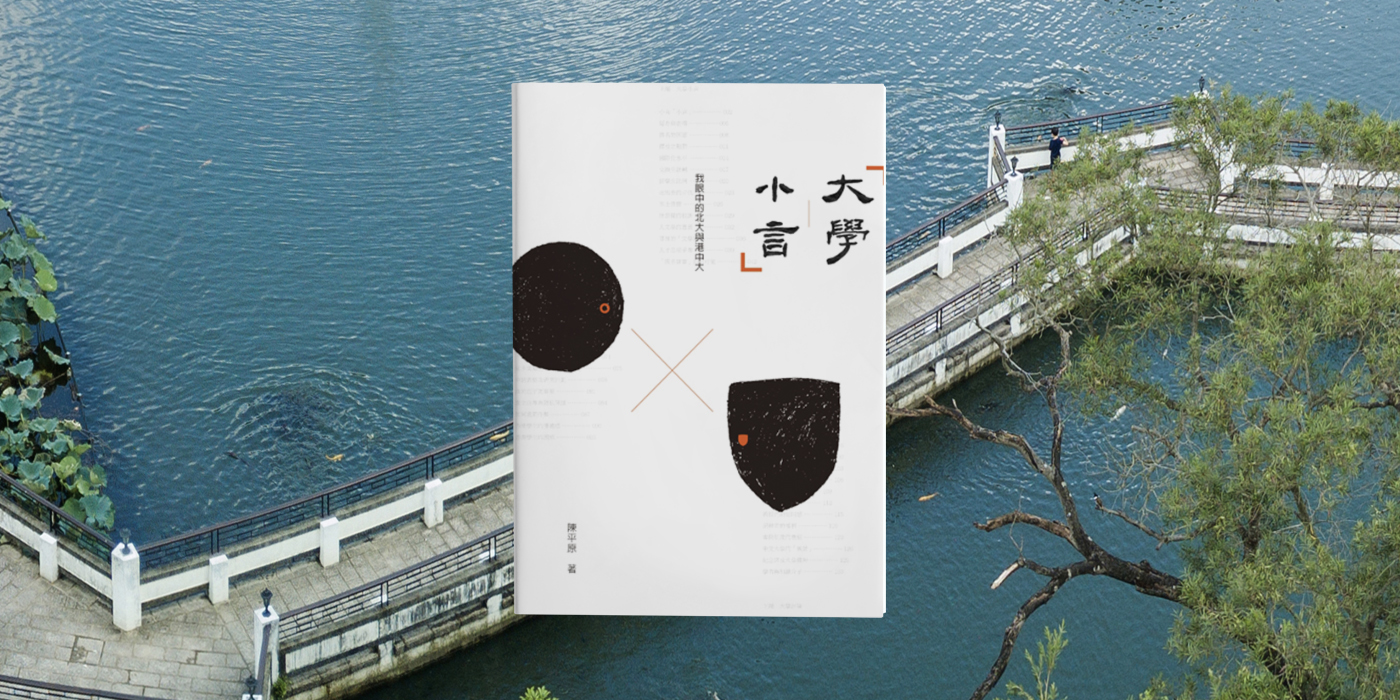
Professor Sham Mai-har, Pro-Vice-Chancellor (Research):
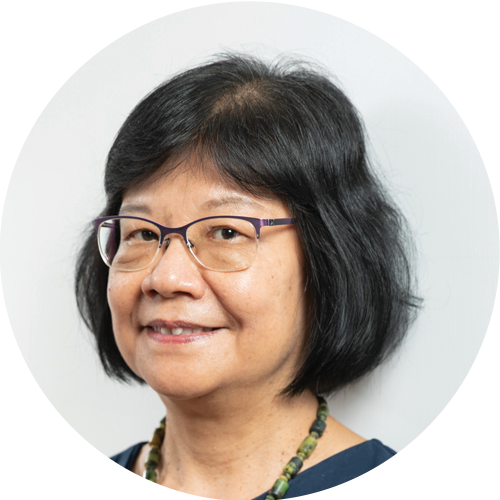 I enjoy reading authors’ minds. Chinese and English novels make up most of my collection, but I also read about history, literature and philosophy. In fact, I will just pick up any book that catches my attention.
I enjoy reading authors’ minds. Chinese and English novels make up most of my collection, but I also read about history, literature and philosophy. In fact, I will just pick up any book that catches my attention.
Professor Chen Pingyuan’s Da Xue Xiao Yan (《大學小言》) is one of my recent favourites. Published ten years ago, it is a compilation of Chen’s short articles – that were published in newspapers – on two universities, Peking University and the Chinese University of Hong Kong. I found the book at last year’s book fair, and it didn’t take long for me to decide that I should pay for a good read.
By reading the short stories, I saw how skilfully Professor Chen of Peking University’s Department of Chinese Language and Literature, delicately recorded his observations onto the page. The stories consist of interesting elements such as the campus environment of two universities, and explore issues like the college system, admission criteria, professors’ promotion and university rankings. As a scholar in the humanities, Professor Chen provides his readers with fresh ideas and new insights, drawing examples from his experience of working in both universities.
A lot can change in ten years, and no discipline has been spared. With the surrounding environment constantly in flux, the mode of teaching and learning may appear to be very different today. After reading this book, I started to think about how to bring the University forward from different perspectives. It is indeed very thought-provoking and inspirational.
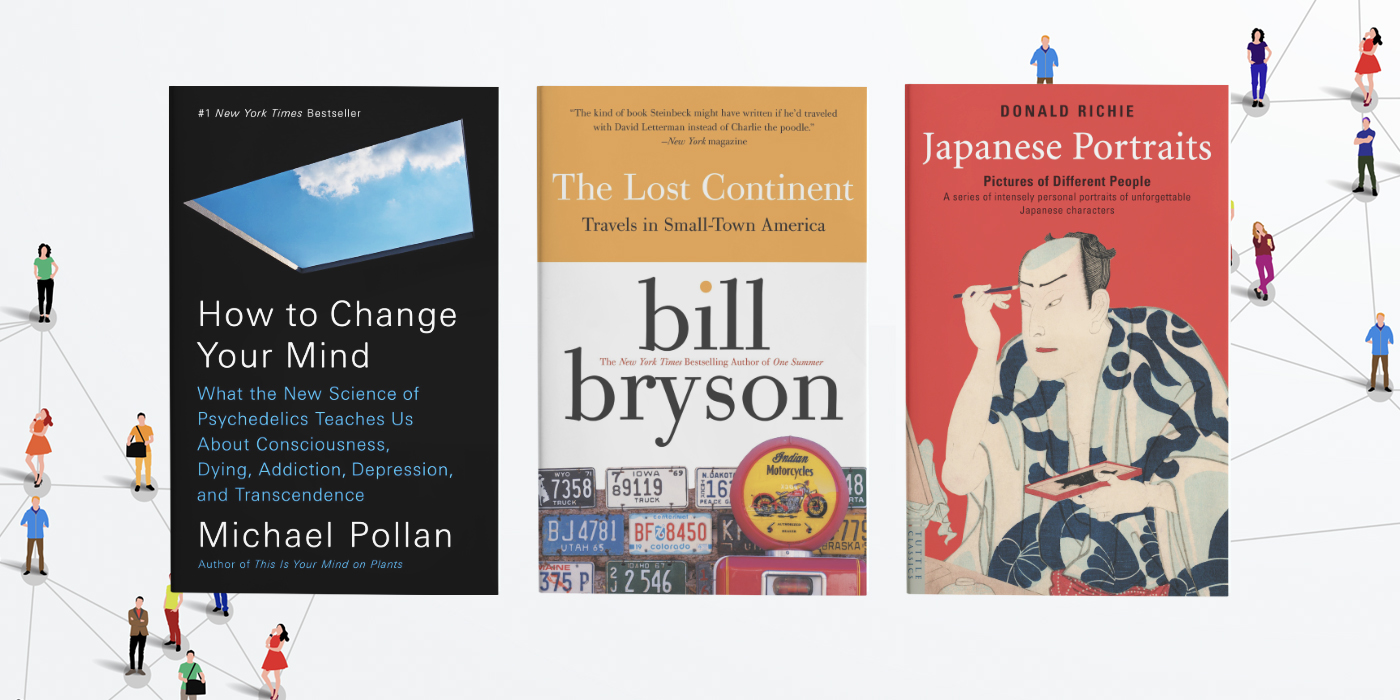
Professor Gordon Mathews, Department of Anthropology
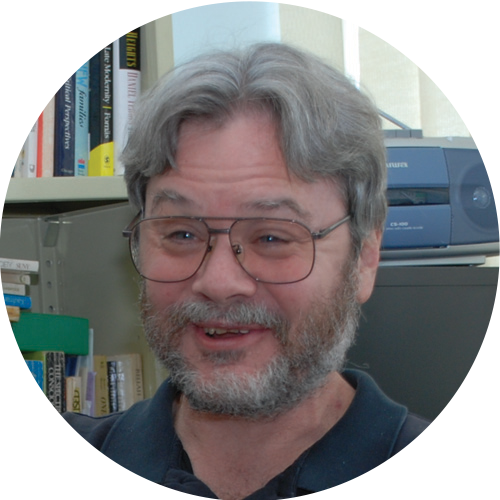 I’ve been reading popular books by physicists about cosmology, artificial intelligence, and the human mind – Brian Greene’s The Hidden Reality: Parallel Universes and the Deep Laws of the Cosmos, Max Tegmark’s Life 3.0: Being Human in the Age of Artificial Intelligence, and Michio Kaku’s The Future of the Mind. Another book I’ve recently read is Michael Pollan’s How to Change Your Mind: What the New Science of Psychedelics Teaches Us About Consciousness, Dying, and Transcendence. I also frequently dip into Yuval Noah Harari’s books, Sapiens: A Brief History of Humankind, Homo Deus: A Brief History of Tomorrow, and 21 Lessons for the 21st Century. I absolutely love reading these well-written popular books about the universe, history, and the future of the world—the world is a really exciting place to be in! Late at night, I may read from one of these books while sipping a small glass of whiskey and just marvel at the world.
I’ve been reading popular books by physicists about cosmology, artificial intelligence, and the human mind – Brian Greene’s The Hidden Reality: Parallel Universes and the Deep Laws of the Cosmos, Max Tegmark’s Life 3.0: Being Human in the Age of Artificial Intelligence, and Michio Kaku’s The Future of the Mind. Another book I’ve recently read is Michael Pollan’s How to Change Your Mind: What the New Science of Psychedelics Teaches Us About Consciousness, Dying, and Transcendence. I also frequently dip into Yuval Noah Harari’s books, Sapiens: A Brief History of Humankind, Homo Deus: A Brief History of Tomorrow, and 21 Lessons for the 21st Century. I absolutely love reading these well-written popular books about the universe, history, and the future of the world—the world is a really exciting place to be in! Late at night, I may read from one of these books while sipping a small glass of whiskey and just marvel at the world.
But when I’m really tired, too tired to think, I turn to another set of books. Bill Bryson, in books like The Lost Continent: Travels in Small-Town America and A Walk In The Woods are wonderfully amusing: I need to avoid laughing too loud in order not to wake up my wife. I also love to read edited books with titles like The World’s Worst Journeys, about travel writers’ most harrowing travels in places on the globe. I’ve recently been reading Donald Richie’s wonderfully vivid short depictions in Japanese Portraits: Pictures of Different People.
Today of course, many people surf the internet rather than reading books in their free time. But keep reading – there’s a magic to books returned to again and again over the years and decades.
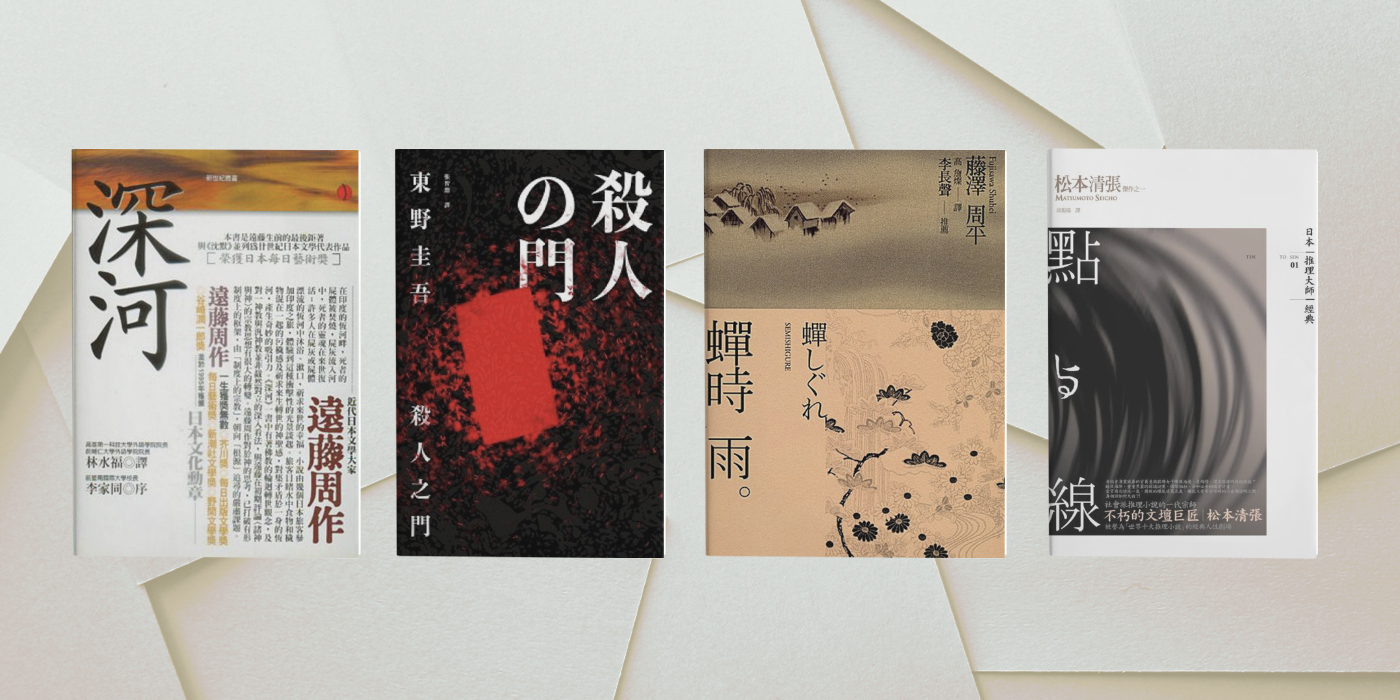
Professor Francis Lee Lap-fung, School of Journalism and Communication:
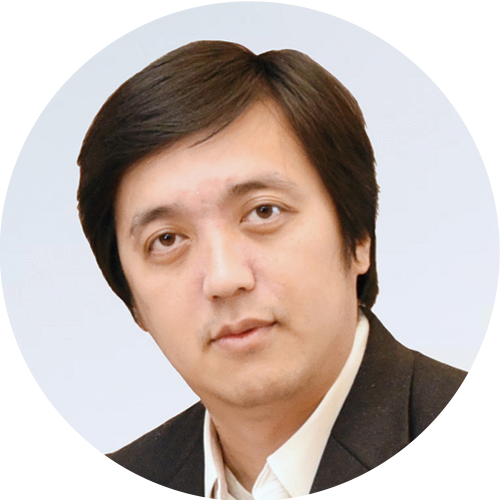 When I was a graduate student, I used to read the original works of major thinkers when I had some free time. There are still quite a number of books by the likes of Foucault, Habermas, and Bourdieu on my bookshelves. I was not really able to understand these works very well, but I read them to get inspiration. I even once bought a copy of Martin Heidegger’s Being and Time, though I have never really read it seriously.
When I was a graduate student, I used to read the original works of major thinkers when I had some free time. There are still quite a number of books by the likes of Foucault, Habermas, and Bourdieu on my bookshelves. I was not really able to understand these works very well, but I read them to get inspiration. I even once bought a copy of Martin Heidegger’s Being and Time, though I have never really read it seriously.
These days I no longer go for the big names, but there are books about very interesting topics that would attract my attention. Sometimes my academic friends may also introduce books to me. One of my favourite books is Zero: The Biography of a Dangerous Idea, which is a history of the number zero written by science journalist and author Charles Seife. Since zero essentially means “nothingness”, the history of zero was also a history of how human thinkers deal with nothingness. The book is a fascinating mixture of history, philosophy, and mathematics.
If I must talk about my purely leisurely readings, it would definitely be popular Japanese novels by Seicho Matsumoto, Keigo Higashino and Shuhei Fujisawa, to name a few. Since I travel to Japan quite frequently, I often have a few (translated) Japanese novels with me on those trips. I am very glad that the CU library system moved all the Japanese novels from CC Library to NA Library a few years ago, so that these days it is more convenient for me to borrow a book or two when I want to.
Edited and translated by Gillian Cheng
Images designed by Amy Tam


